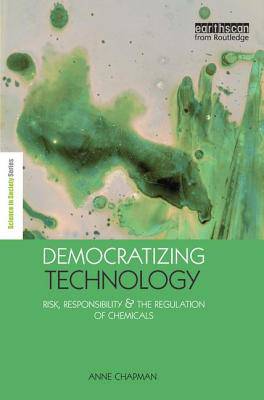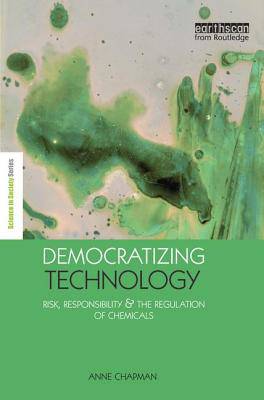
- Retrait gratuit dans votre magasin Club
- 7.000.000 titres dans notre catalogue
- Payer en toute sécurité
- Toujours un magasin près de chez vous
- Retrait gratuit dans votre magasin Club
- 7.000.0000 titres dans notre catalogue
- Payer en toute sécurité
- Toujours un magasin près de chez vous
62,45 €
+ 124 points
Description
Democratizing Technology provides a much-needed fresh perspective on the regulation of chemicals, and an important contribution to green thinking about technology.Caroline Lucas, Green Party MEP. This book is an excellent critique of the current risk-based approach to technology. By exploring the philosophical underpinnings and the practical applications of current policy on science and technology, Chapman exposes the serious flaws in allowing economic considerations to dominate the agenda in this area. Her proposals for reform are expertly constructed and deserve urgent and serious consideration by policy-makers.Dr Stuart Parkinson, Executive Director, Scientists for Global Responsibility. In this important book Anne Chapman argues that decisions about technology should answer a republican question: what kind of public world should we create through technology? Democratizing Technology deserves to be read widely. John ONeill, Professor of Political Economy, University of Manchester, UK A welcome addition to the new, more empirical and applied literature in philosophy of technology. This book will be essential reading for a variety of scholars and for the general reader intent on understanding, and criticizing, our chemically made world.Andrew Light, Interim Director, Program on the Environment, University of Washington, US What is technology? How do humans use it to build and modify the world? What are the relationships between technology, science, economics and democratic governance? What, if any, are our ethical and political responsibilities and choices in how we develop, deploy and control technology in democratic states? Democratizing Technology sets out to answer these questions. Focusing on the most widespread and pervasive technology - chemicals - this groundbreaking volume peels apart the critical technology debate to look at the relationship between humans, technology and the biological world. Attention is given to the immensely important new regulations, REACH (Registration, Evaluation, Authorization and restriction of Chemicals), the EUs largest ever legal framework, discussing the problems that are likely to occur in REACHs reliance on risk assessment methods and suggesting an alternative way forward for the regulation of chemicals. Providing much-needed clarity and insight into the heart of key debates in science and technology, risk analysis and mitigation, and domestic and international law, this volume arrives as a breath of fresh air.
Spécifications
Parties prenantes
- Auteur(s) :
- Editeur:
Contenu
- Nombre de pages :
- 192
- Langue:
- Anglais
- Collection :
Caractéristiques
- EAN:
- 9781138967403
- Date de parution :
- 25-11-16
- Format:
- Livre broché
- Format numérique:
- Trade paperback (VS)
- Dimensions :
- 156 mm x 233 mm
- Poids :
- 452 g

Les avis
Nous publions uniquement les avis qui respectent les conditions requises. Consultez nos conditions pour les avis.






